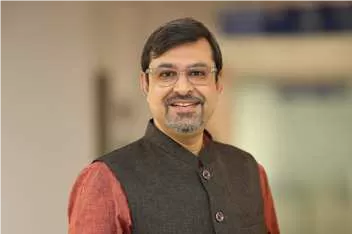Strategy Formulation & Execution and Problem Solving with Design Thinking Approach
Jio Institute organised a 5-day programme on “Strategy Formulation and Execution and Problem-Solving with Design Thinking Approach" for senior leaders of Reliance Industries – Petrochemical Division. The programme saw a total of 35 participants from various functions of RIL– Petro Chemical division, such as marketing, procurement and sourcing, business development, operations, product management, R&D and many others taking part. The program focused on the intricacies of strategic decision-making, equipped with the latest tools, frameworks, and methodologies useful to navigate complex business landscapes and explored the transformative power of Design Thinking in Problem Solving.
Last Conducted On: 05 Mar 2024 - 09 Mar 2024
Mode: Offline
Upcoming Sessions
About Reliance Petro Chemical Division
Reliance Industries is one of India's largest private sector companies, with a consolidated turnover of $44.7 billion, cash profit of $6.1 billion, and net profit of $4.2 billion for the year ended 31 March 2016. It is the first private sector company from India to feature in Fortune's Global 500 World's Largest Corporations list, currently ranking 215th in terms of revenues and 126th in terms of profits. Its activities span hydrocarbon exploration and production, petroleum refining and marketing, petrochemicals, retail and telecommunications.
Reliance is the largest integrated petrochemical producer in India and the world’s largest integrated polyester producer. Reliance’s Petrochemical division started with “Only Vimal," and then expanded into petrochemicals and refining, pioneering a fully integrated Oil-to-Chemicals (O2C) portfolio today. Reliance’s O2C business boasts world-class assets, including refineries and downstream facilities, supported by top-tier logistics. It is one of the few global companies with integration from oil to transportation fuels, polymers and elastomers, intermediates, and polyesters.
Programme Overview
The Executive Education programme conducted by Jio Institute in collaboration with Reliance Petro Chemical Division focused on helping leaders of Reliance Pet Chem, make strategic decisions and provided them with the latest tools and methods to navigate complex business environments. It also highlighted the effectiveness of Design Thinking in problem-solving. Executives at various levels and departments of Reliance Petro Chemical Business attended the program.
The program was led by esteemed facilitators:
Module 1: Strategy Formulation and Execution was taught by: Professor Sougata Roy, Thomas Schmidheiny Chair and Executive Director-TSCFE at ISB, bringing over three decades of rich experience in academia, research, institution building, and corporate governance and Dr Raveendra Chittoor, who held senior roles at leading organisations like IBM, CRISIL (a subsidiary of Standard & Poor's), and Rajan Raheja Group.
Module 2: Problem-solving with Design Thinking Approach was taught by Dr Gayatri Menon, principal faculty at the National Institute of Design (NID), with more than 23 years of expertise in design education, research, and practice. She leads research and development activities at NID and heads the Center for Teaching-Learning.
The programme brought real-world case studies of Indian and global contexts, that helped participants gain a practical understanding of the concepts. The participants also engaged in hands-on exercises where they prepared strategy maps and balanced scorecards, followed by presenting their solutions
The faculties provided invaluable insights into crafting and implementing robust strategies to foster sustainable competitive advantage.
The programme was conducted from 2nd March – 6th March 2024, in offline mode at Jio Institute’s campus.
Learning Outcomes
The Executive Education programme yielded a variety of learning outcomes
Strategy Formulation and Execution
- Enable Strategic mindset: Participants will acquire the knowledge and skills to analyse, assess, design and implement business strategies. The participants will understand clearly how effective strategic planning shapes outcomes and how to craft short-term and long-term strategic goals.
- Understand the forces that shape the competitive advantage of businesses: Participants will gain the expertise to evaluate growth options, make informed choices, and align strategies with overarching short-term and long-term organizational goals
- Enhance Critical thinking: The programme will help to think critically and in an integrative fashion about various facets of competition –global as well as local.
- Navigate complexities of decision-making: Through real-world case studies and interactive exercises, participants gain insights into strategy execution, aligning theoretical knowledge with practical application. The programme will serve as a hands-on guide, empowering individuals to navigate the complexities of strategic decision-making and implementation, ensuring they are well-prepared to drive organizational success through an understanding of the interdependence of effective strategy formulation and execution.
Problem Solving with a Design Thinking Approach:
- Acquaint the participants with Design thinking: Enabling participants with Design thinking, Design methods, and practices, and critical aspects of design that help in user understanding and collective idea generation with a focus on design innovation.
- Create a design thinking culture: The programme will help in developing a human-centric approach while designing, innovating, developing, and testing solutions for new products, services and processes and also drive innovation
- Customer-centric approach: The sessions will help in developing the individual ability to create and test prototypes that are customer-friendly and innovative at the same time.
Programme Synopsis
Day 1: Strategy Formulation & Execution - 1
- Developing a Strategic Mindset – Strategic Thinking to Link Present and Future and Short-term and Long-term Strategic Goals
- Introduction to Frameworks and Key Drivers of Strategy Formulation and Execution
- Role of Leadership and organization culture on Strategic decision making
- Interdependence of Strategy Formulation and Execution and Development of an Integrated approach
Day 2: Strategy Formulation & Execution – 2
- Action Plans for Implementing Strategic Insights and Resource Allocation in Alignment with Strategic Goals
- Leadership talks
- Decision-making and risk mitigation to adapt to uncertain environments
- Hands-on Exercise in Small Groups: Preparation of Strategy Map and Balanced Scorecard
- Group Presentations
Day 3: Introduction to Design, Design Thinking and Innovation
- Introduction to frameworks and tools involved in discovering viable solutions to customer challenges.
- Breakdown of design thinking process (Empathize, Design, Ideate, Prototype, Test)
- Importance of empathy in problem-solving and problem-identification
- Practical exercises on observation and interview techniques to uncover unmet customer needs.
- Understand the persona: discover needs and understand your users – their motivations, attitudes, environments and goals.
Day 4: Design Thinking: Techniques, Formulation & Solutions
- Techniques for creating a persona and for tailoring solutions to specific user needs
- Deep dive into problem-solving: developing well-defined problem statements.
- Generation of novel ideas through divergent thinking
- Formulating and validating problem hypotheses, exploring brainstorming techniques/ Synectic, and learning to develop prototypes/solution outcomes
Day 5: Design Thinking: Testing, Feedback, Iteration and Integration
- The importance of testing, feedback, and iteration in the design process.
- Developing and testing a business model or case to validate the viability of the solution.
- Integrating business considerations into the design process.
- Problem-solving simulation: Presenting the Applying the principles learned in simulated problem-solving scenarios.
- Presentations by participants and feedback discussions
- Discuss how to foster a culture of innovation within organizations and develop future scenarios and systems-thinking approaches


